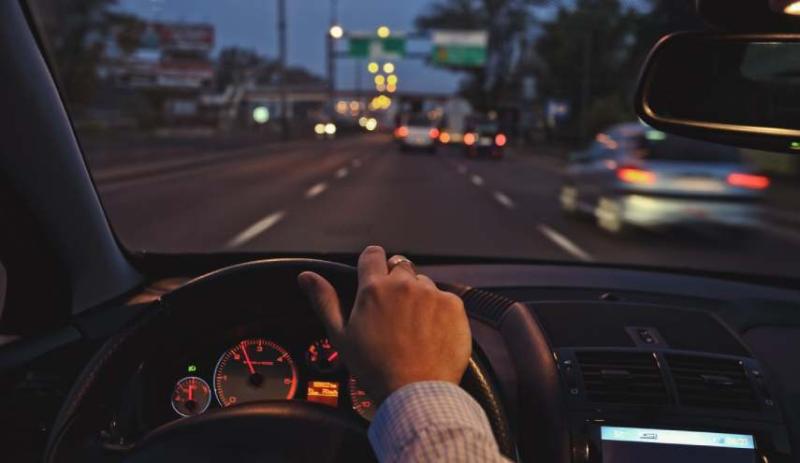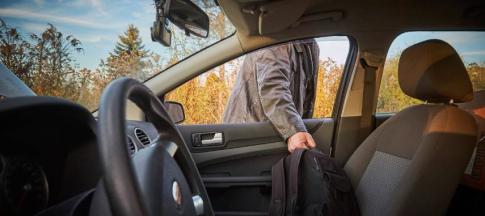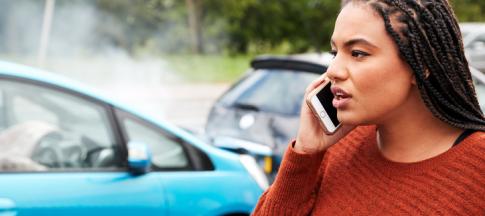
Here, we look at what steps to take if an uninsured driver hits you, how to report them, and whether your insurance will cover you.
What happens if an uninsured driver hits you
You might not know if someone who hits you is uninsured. It's one of the reasons why you should gather as much information as you can after an accident like:
- the other party's contact details and insurance information
- the other vehicle's make, model and registration
- the colour of the vehicle, and any other identifying features, such as modifications
- photos and/or videos of the scene
- eyewitness accounts and contact details
The most important thing – other than your safety – is to collect the contact details from the other party.
It's an offence not to share contact details when there are 'reasonable grounds' for requesting them – including any damage to your car.
As such, get the police involved if you meet any resistance from the other party.
You can learn more about what steps to take if you're involved in an accident here.
How to tell if a driver's insured or not
You should be able to find out the other party's insurance status using their vehicle registration.
Either ask your insurance provider if they can find this out for you, or you can query the Motor Insurance Database (MID).
You can do this by going to askMID's online service and providing details about the incident. The service costs £10 (as of April 2023) and will confirm whether the driver is insured.
They'll provide you with their insurance details. It'll include their provider, policy number and contact details to make a claim.
When you report an incident to us, we'll have access to the MID at no cost to you. You must tell us even if you're not claiming.
What if the collision is a hit-and-run?
First, see if you can find witnesses. If anybody else noticed the incident, try to get as many details from them as possible and their contact details so they can corroborate this.
Check for nearby cameras or video doorbells too. It helps if you have dash cam footage too.
Take photos, especially of evidence like traces of other vehicle paint on your car or the road – they could help your claim.
How to report a suspected uninsured driver
The Road Traffic Act (1998) says you should report any car accident to the police if it's damaged or injured people or animals. You should call 999 if anybody's hurt and needs attention. For non-emergencies, it's 101.
You must report accidents within 24 hours, giving information such as the date, time and details of all vehicles involved.
Call the police if the other person won't cooperate. There's a likelihood that the other person may try to leave, and you shouldn't try to stop them as this could mean putting yourself at further risk.
Can you claim on your insurance if hit by an uninsured driver?
Yes, provided you have a comprehensive policy. However, claims can become more complicated as your insurance provider won't be able to recover the cost from another insurer.
Insurers can't cover you if you have a third-party, fire and theft (TPFT) or third-party only (TPO) policy. You can claim compensation via the Motor Insurers' Bureau (MIB).
The MIB is a non-profit organisation which helps road users with claims against uninsured or untraced drivers.
You can lose your no-claims bonus (NCB) if we can't recover the car or if you don't share details.
How to claim if you can't find the driver
The process is the same as claiming against an uninsured driver.
Go through your insurer if you have a comprehensive policy. If you don't, go through the MIB.
Will it impact your no-claims bonus?
You risk losing your NCB if you're involved in a collision and one of the parties makes a claim – whether you were at fault or not.
When it comes to being in an incident with an uninsured driver, it depends on your policy.
For example, if you have a comprehensive car insurance policy with us, you'll benefit from our Admiral Uninsured Driver Promise.
The Promise states that if you're involved in an accident with an uninsured driver, and it wasn't your fault, your NCB won't be affected – provided you can supply the other vehicle's make, model and registration.
You may pay a higher premium at renewal if your claim remains unsettled, however we’ll refund the difference in premium once your claim is settled.
What happens if you hit a non-insured driver?
You should tell your insurance provider. You need to do this whether or not the other party is insured and if you don't intend to make a claim.
If you're at fault, the insurance status of the other party doesn't matter. You still risk having a claim made against you, which could result in losing your NCB unless you've protected it.
You may also pay a higher price at renewal.
Is driving uninsured illegal?
Yes. Driving without insurance is a serious offence, and the penalties can be severe.
You need at least third-party cover if you drive on any UK road or public space. You can get a fine even if you're not driving the car, but you've parked it on a public road.
The police can issue a fixed penalty of £300 and six penalty points on your licence. You could be disqualified from driving and receive an unlimited fine if the case goes to court.
Police have the power to seize driven uninsured cars and have them destroyed.
How do police catch uninsured drivers in the UK?
The police use the MID. It contains information on every car insurance policy in the UK, and every insurance provider must update it with all new policies.
The police have access to this information at any time. Coupled with Automatic Number Plate Recognition (ANPR), the police have a powerful set of tools for identifying uninsured drivers.
Finally, it's no longer the case that cars don't need to be insured if they're not driven on public highways.
If you have a car that's off-road and you don't wish to insure it, it's mandatory to make a Statutory Road Notification (SORN). Not declaring this could lead to fines for the car being uninsured or untaxed.
[1] https://www.gov.uk/vehicle-insurance/driving-without-insurance


